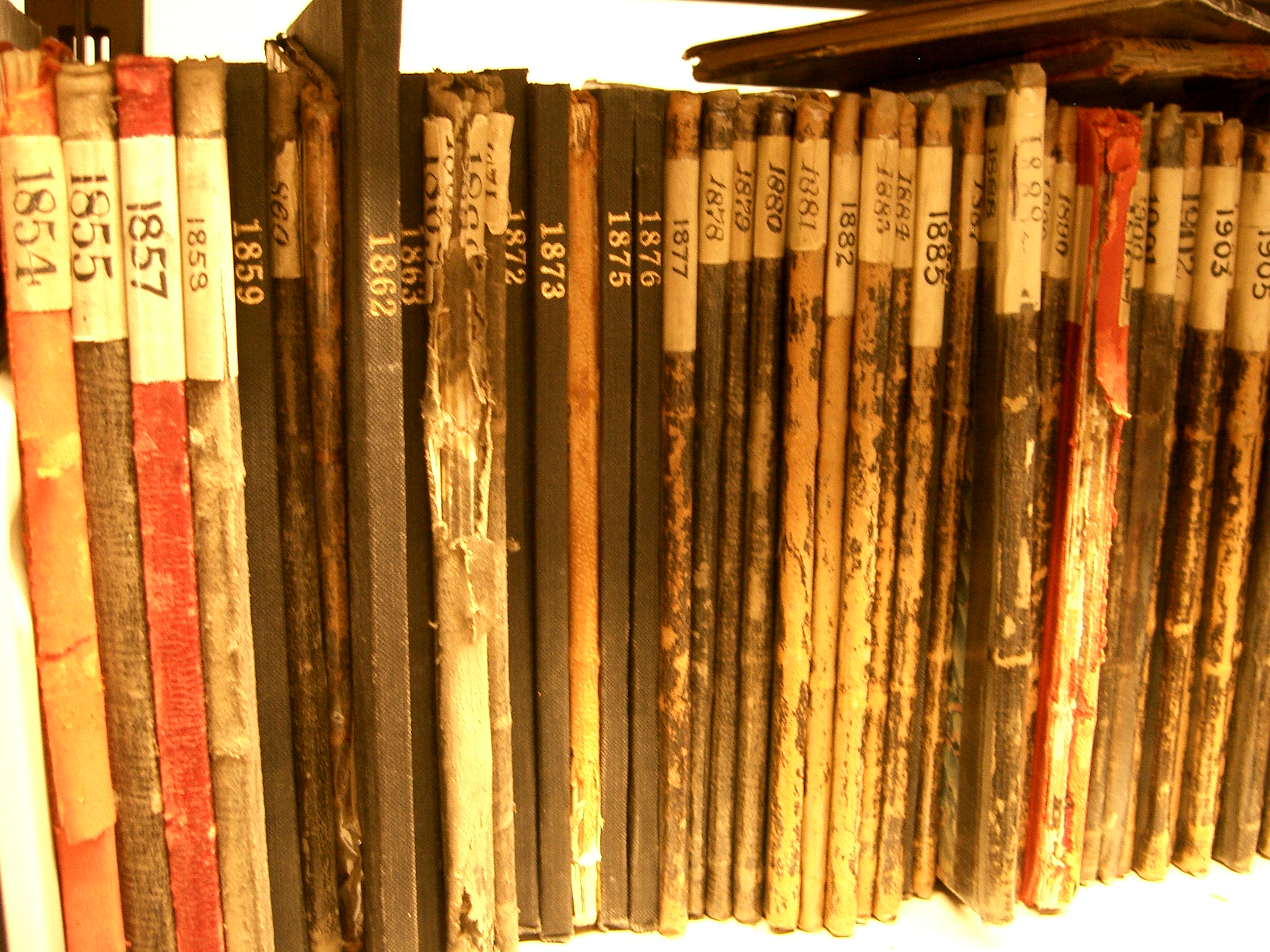ISC is the custodian of the original Dominion Land Survey Field Books. These books were compiled by early surveyors who created the first subdivisions of the land and in the process, created what is now known as the Township Survey system. Some of these books are 140 years old!
There are over 8,000 Field Books in storage at ISC's records facility in Regina. These journals contain about 430,000 pages of historical information. In 2008, ISC made it possible to search Field Books online free of charge. Having this information online is especially helpful for surveyors, as they continue to refer to field books in the course of their work. No longer do surveyors have to wait for a book to be retrieved from a warehouse, have photocopies of the book made, and have those photocopies sent to them by fax or by mail. This has reduced turnaround times to mere minutes!
The handwritten notes, drawings and reports contained within these books are fascinating to view. If you are interested in researching your family’s history in Saskatchewan, or if you are curious to see how your piece of land or a neighbour’s was described a century ago, register for an ISC account today and check out these historic documents for yourself.
Field Books Today: Still Working Documents
 The original Field Books remain working documents. Preservation of the original township system guarantees the security of land ownership that Saskatchewan residents have enjoyed since the late 1800s. Frequently, legal survey information from the Field Books is required to resolve boundary uncertainties and to re-establish original survey monuments. ISC survey and mapping professionals use the originals for reference and quality control.
The original Field Books remain working documents. Preservation of the original township system guarantees the security of land ownership that Saskatchewan residents have enjoyed since the late 1800s. Frequently, legal survey information from the Field Books is required to resolve boundary uncertainties and to re-establish original survey monuments. ISC survey and mapping professionals use the originals for reference and quality control.
 Today, outside of ISC, many people use the original Field Books. Historians and research groups have used Field Books in a variety of ways. Saskatchewan's Ministry of Environment and various federal agencies have used the volumes to conduct research on lake and water level changes over the past 100 years. A variety of professional and amateur historians have used these original documents to research homesteads, occupation of lands at the time of settlement and the existence of old forts and trails.
Today, outside of ISC, many people use the original Field Books. Historians and research groups have used Field Books in a variety of ways. Saskatchewan's Ministry of Environment and various federal agencies have used the volumes to conduct research on lake and water level changes over the past 100 years. A variety of professional and amateur historians have used these original documents to research homesteads, occupation of lands at the time of settlement and the existence of old forts and trails.
Learn more about the elements of a Field Book.
Read some actual Field Book entries.